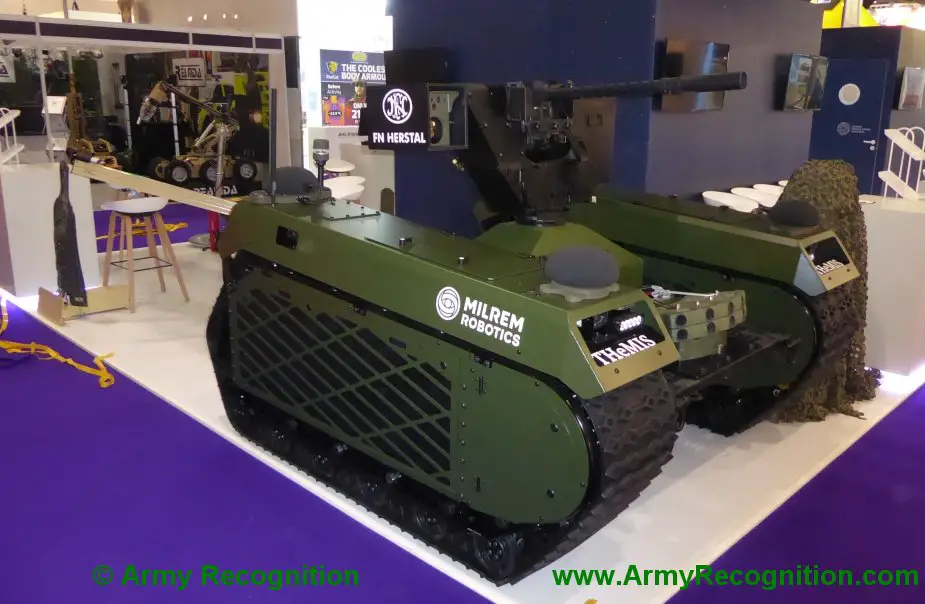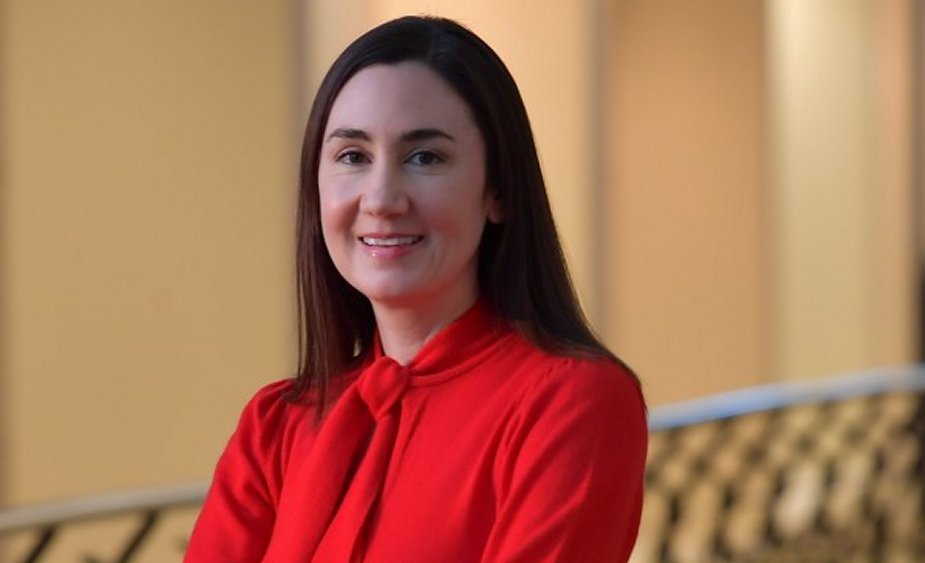U.S. Army scientist participates in NATO working group
An Army researcher is part of a NATO working group on a mission to develop a suggested path for future research in the field of knowledge representation and reasoning, to include unmanned autonomous ground vehicles.

The results of the on-going study would benefit namely the UGVs (Picture source: Army Recognition)
Dr. Claire Bonial from the U.S. Army Combat Capabilities Development Command’s Army Research Laboratory recently represented the laboratory in the NATO IST-ET-111 Knowledge Representation and Reasoning working group in Salisbury, England. The group, made up of researchers from Germany, Canada, the United Kingdom and the United States, aims to detail the landscape of knowledge representation and reasoning in order to make recommendations for NATO leveraging these technologies. It was formed as a continuation and focusing of other lines of research explored by past NATO Information Systems Technology panels, such as the Content-Based Multi-media Analytics, or NATO IST-144. The working group is preparing an international science and technology strategy document describing the state-of-the-art in knowledge representation and reasoning.
According to Bonial, increasingly, industry approaches to knowledge representation and reasoning are moving towards big-data, black-box machine learning. The group will investigate how they can leverage such approaches, but also explore the specific challenges to NATO and coalition forces, which often lack sufficient amounts of data and require more transparency and explainability than the problems addressed by industry research. “We will explore and summarize alternative approaches from academia and coalition research groups and make recommendations for how NATO can leverage existing technologies for knowledge representation and reasoning as well as make suggestions for promising future directions and standardization/interoperability of representations,” Bonial said.

Dr. Claire Bonial from the Army’s corporate research laboratory is part of the NATO IST-ET-111 Knowledge Representation and Reasoning working group, which aims to detail the landscape of knowledge representation and reasoning in order to make recommendations for NATO leveraging these technologies (Picture source: U.S. Army)
Bonial noted that this working group is exploratory and is meant to explicate the state-of-the-art as well as promising future directions for knowledge representation that will allow coalition forces to work together to enhance technologies, such as unmanned autonomous ground vehicles, with standard and/or interoperable knowledge representations that can be used for computational systems to reason over incoming information. “This will provide the bedrock of research upon which knowledge representation and reasoning technologies can advance within coalition forces, but does not have any specific technology as a deliverable, rather a report that will guide future research among coalition partners,” Bonial said. “NATO relies upon this group, like other IST panels, in order to ensure that coalition partners can mutually benefit from technological advances and maintain the tactical advantage of combined coalition forces,” Bonial said. “In this case, communication among coalition partners is essential so that disparate computational systems and agents can, in the future, move towards leveraging a more standard or interoperable representation of knowledge that can be shared and used for reasoning to support the Soldier in multi-domain operations.”
For Bonial, it is crucial that the lab takes part in this working group in order for the Army, with its specific challenges (e.g., low bandwidth networks) and expertise, to help guide coalition standards when it comes to knowledge representation and approaches to reasoning over those representations. “The Soldier is inundated with information from heterogeneous sensors and sources of information in the current environment of multi-domain operations,” Bonial said. “While computational systems are extremely valuable for helping to process this information, representing knowledge and reasoning over information automatically remains extremely challenging, and there is no consensus or standard for knowledge representation. This NATO working group provides coalition forces with an understanding of the state-of-the-art and the “art of the possible” when it comes to knowledge representation and reasoning for computational systems.”
At this stage, the working group is preparing their report on current and future paths for knowledge representation and reasoning research. Bonial will focus on sections of the report detailing current research in ontologies, considerations for natural language interfaces with computational systems, existing and promising resources for understanding causality, and multi-modal knowledge representations. The report will be presented to NATO leadership in October 2020.


























